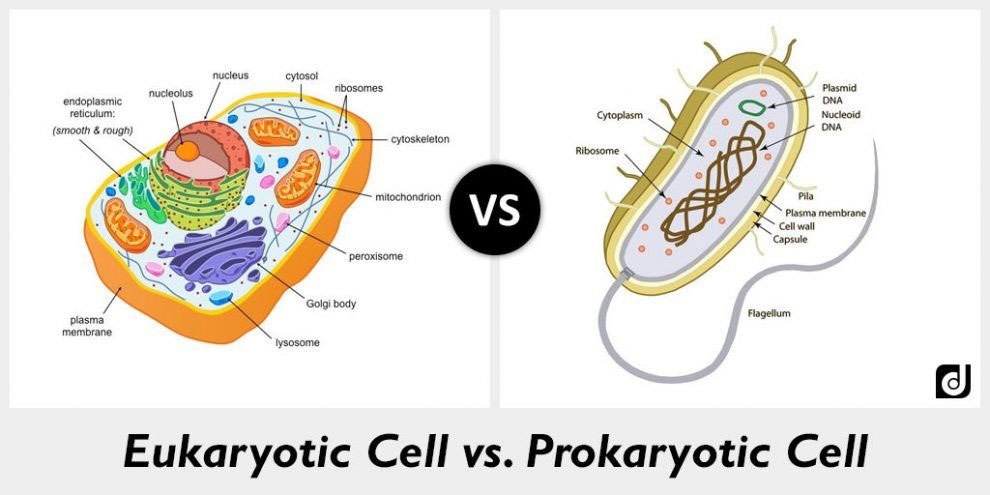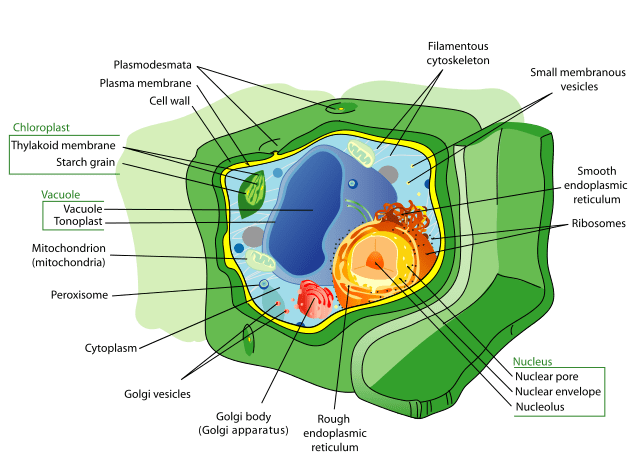are bacterial cells eukaryotic or prokaryotic?
Is a bacterial cell eukaryotic. The DNA in bacteria rather is.
 |
| Prokaryotic Cells |
The primary distinction between these two types of organisms is that eukaryotic cells have a membrane-bound nucleus and prokaryotic cells do not.

. Are bacteria cells prokaryotic or eukaryotic. Their cell structure is simpler than the cells of eukaryotes and cells are smaller most are 02 μm - 20. Prokaryotes Bacteria lack a membrane-bound nucleus and other internal structures and are therefore ranked among the unicellular life-forms. Eukaryotic cells contain a nucleus and organelles bound by plasma membranes.
Prokaryotic and eukaryotic cells are the basic units of life on Earth. Most prokaryotes are unicellular and are either archaea or bacteria. The cytoplasm of the. Fungi plants and animals are made of eukaryotic cells eukaryotes.
The single-celled organisms of the domains Bacteria and Archaea are classified as prokaryotes pro before. Their cells are smaller than eukaryotic cells. Cells fall into one of two broad categories. However eukaryotic ribosomes are.
Eukaryotes include larger more complex organisms such as. They do not have a cell wall or nuclei. Eukaryotic cells have a membrane-bound nucleus. Is a bacteria an organism.
Bacterial cells are prokaryotic. This is crucial for preventing the process of phagocytosis where the bacteria gets engulfed by other eukaryotic cells such as macrophages The pilus is a hair-like appendage found on the. Bacteria are prokaryotic organisms that are not considered as true cells because of the following reasons. They have something called a nucleoid instead.
Grand jury indictments 2022. Tail log file web browser. Their cells are much smaller than eukaryotic cells do not possess a nuclear membrane nor do they have membrane-bound organelles such as. The answer is as bacteria completely lack any cellular compartments thus they are prokaryotes even though they do the same functions as multicellular organisms.
Animal cells plant cells fungi and protists are. Prokaryotic cells comprise bacteria and archaea. Bacteria are prokaryotic. A prokaryotic cell is divided into two categories ie bacteria and archaea.
1 Bacteria do not have a true nucleus. Bacteria and archaea are unicellular ie single-celled organisms. Unlike a typical eukaryotic cell they _____. Prokaryotic cells do not have a.
The nucleus is where eukaryotes store. Prokaryotes Bacteria are amongst the simplest of organisms - they are made of single cells. The answer is as bacteria completely lack any cellular compartments thus they are prokaryotes even though they do the same functions as multicellular organisms. Anywhere from 200 to 10000 prokaryotic cells could fit on the.
Bacterial cells are prokaryotic because they lack double membranous cell organelles like nucleus mitochondrion chloroplast endoplasmic reticulum and golgi bodies. The basic distinction between prokaryotes and eukaryotes is that prokaryotes lack a membrane-bound. Eukaryotic and prokaryotic cells have multiple ribosomes. They do not possess any internal membranous organelles and their morphology or cellular organization is so simple this differentiates them.
The single-celled organisms of the domains Bacteria and Archaea are classified as. Eukaryotic cells are found in plants animals fungi and protists. How to leave whatsapp group politely. 1Lack a nucleus 2Have no membrane-bounded organelles in their cytoplasm 3Have a smaller nucleus 4Lack a.
Bacteria are single-celled prokaryotic organisms. Esophagus issues after covid.
 |
| Module 2 Part A Cell Structure |
 |
| Bacteria Cell Evolution Classification Britannica |
 |
| Prokaryotic Vs Eukaryotic Cells Differences Examples |
 |
| Prokaryotic Cells Definition Structure Characteristics And Examples |
 |
| Difference Between Plant Cell And Bacterial Cell Compare The Difference Between Similar Terms |
Posting Komentar untuk "are bacterial cells eukaryotic or prokaryotic?"